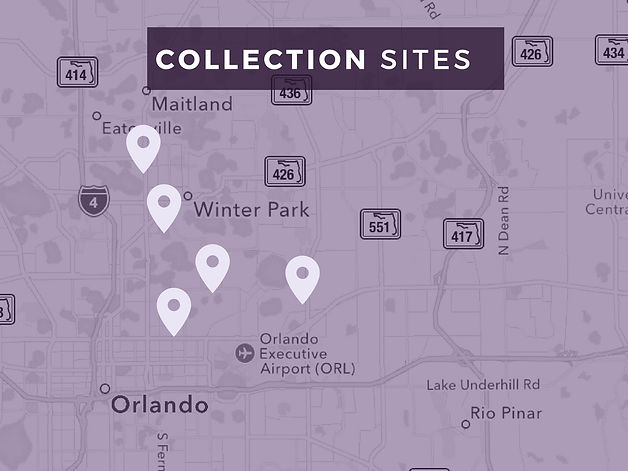

| OVERVIEW
BatterEASE is a social enterprise electronics recycler on a mission to reclaim, rejuvenate, and repurpose electronic waste to promote sustainability and create affordable energy solutions for vulnerable populations facing energy poverty.
Headquartered in Orlando, Florida, BatterEASE utilizes a hybrid business structure to allow vulnerable populations to harness energy in a way that is effective, accessible, sustainable, and environmentally friendly.


role
Cofounder, Director of Marketing & Development



organization
date
category
BatterEASE Co.
& BatterEASE Foundation
Jan 2018 - Jan 2021
UX, Service Design, Business Strategy, Energy Tech

| problem
ENERGY POVERTY
In our world today, 2.7 billion people still live with precarious access to energy. This energy poverty is a hindrance to those seeking: work, education, economic growth, and basic health.
E-WASTE
Each year, over 40 million tons of e-waste are generated globally. In America alone, on average, we replace our tech every 18 months, which accounts for 10 million tons of e-waste - just in one country. This waste fills landfills causing dangerous chemicals to leach into the soil, harming both the environment and the people who live in it.
So, we asked ourselves, “What if the waste that both businesses & consumers create could be repurposed to solve the energy crisis?”

| end-user research
We ventured on a journey of empathy-centered research and design by contacting and gathering qualitative and quantitative data from potential end-users around the world. This helped our understanding of energy usage, what the impact of energy poverty looks like on a daily basis, and how new technology could be seamlessly integrated into areas with rich cultures and long-standing energy-usage habits and routines.
This included:
-
Having conversations with local tribe leaders and dispersing quantitative questionnaires to over 50 villagers in Kenya
-
Completing over 300 customer qualitative discovery interviews to understand energy uses in areas, such as Puerto Rico, Uganda, Rwanda, Tanzania, Saudi Arabia, and Syria
-
Surveying over 1,000 potential end-users from over 100 countries
-
The co-creation led to 4 product iterations and 3 innovative distribution strategies to ensure the solution was effective and accessible to vulnerable, rural communities

| prototype
Lithium batteries found in phones, laptops, and other rechargeable devices are more expensive to recycle than they are worth in raw materials. However, lithium batteries often have power left in them that is inaccessible for typical use. With a patentable recharging method, BatterEASE found a way to harness the leftover power, effectively bringing the batteries back to life for a second use.
We tested our method by collecting 78 batteries from local partners; 65% of the recovered batteries passed our upcycling tests. Using these materials, we were able to create power packs that hold up to 3,000 charges in a second life, comparable to new battery packs.
-
In June 2018, we launched our first round of official partnerships with pick-up locations in 4 different stores around Orlando, Florida
-
In August 2018, we created to-scale prototypes with 3D printers
-
In 2018-2019, we created models of various kiosk set-ups for rural communities locally sourced in each region
-
In 2019-2020, we worked with two university prototyping labs to build prototypes to use for industry testing and to secure our IP
.jpg)
| pilot
With the feedback from our partnering international NGOs and their community members, we built pilot programs for natural disaster relief in Puerto Rico, kiosk solar charging stations in the East African Community, and expandable energy kits for women's microfinance in Uganda.
The pilots were helpful to improve the user interface, pricing models, distribution models, and sourcing models. Additionally, the battery packs' efficiency needed to be put to the test to produce the safest, most cost-effective product.
For battery cell sourcing, we ran a pilot to collect e-waste from 5 local businesses in Orlando, Florida. We also partnered with a local recycling plant that bought the leftover e-waste we collected that was unusable for our battery packs. This also helped us identify an additional revenue stream that would benefit our hybrid business structure.
| solution
BatterEASE, with its partners, gathers e-waste and repurposes it to give it new life by assembling it into battery housing, creating an EASE Pack. EASE Packs have the potential to be the most affordable energy solution for people facing energy poverty.
EASE Packs can be customized by stacking horizontally to increase power duration and vertically to maximize power output. This unique structure makes them valuable for someone seeking a single unit to charge a personal phone, to a corporation that requires enough energy to power dozens of computers, phones, and lighting, and more. This means EASE Packs can take the place of virtually any rechargeable battery to harness and utilize energy.
EASE Packs are offered in various specialized product packages. Our end-user research influenced our decision to have a diverse product that is applicable across the board since energy poverty is found in many forms across and multiple regions.
